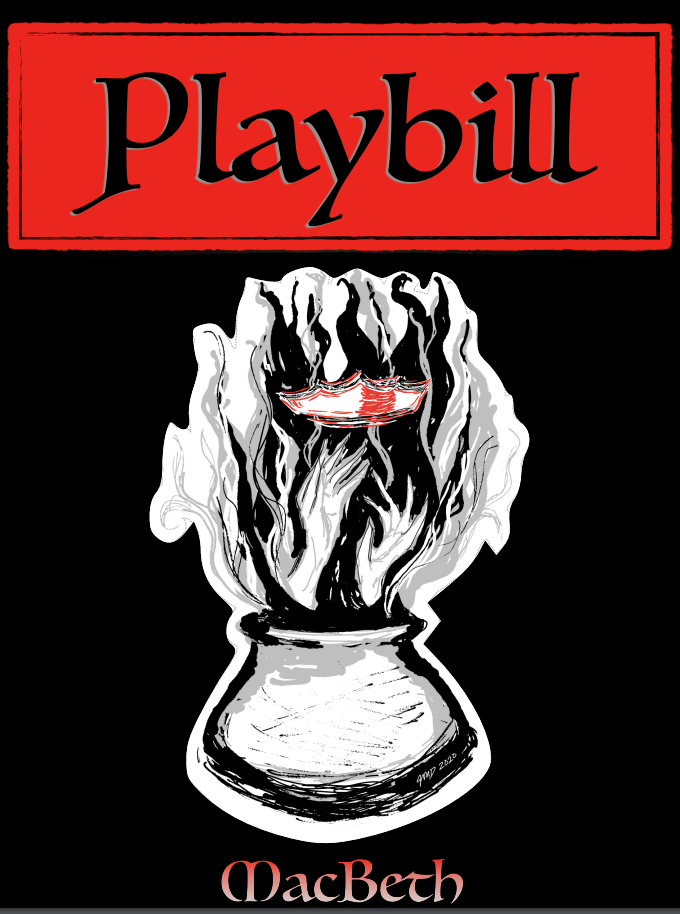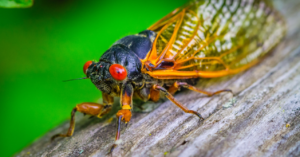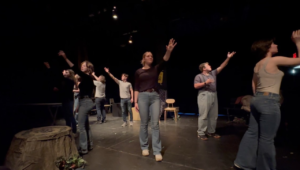An Evening at the (Zoom) Theatre: The History Department’s Macbeth

Image Courtesy of Michelle Datiles, Mikkaela Bailey, CUA History Department
By Anna Harvey
This past Sunday, October 25, the History Department put on a Zoom production of an abridged version of Shakespeare’s Macbeth. The performance featured both students and faculty from the history department and used an array of Zoom backgrounds, sound effects, musical recordings, and costumes in order to achieve a mysterious Scottish aura.
Professor Caroline Sherman, the originator of the idea, gave a brief introduction at the beginning of the play.
“Now of course as we all know, I’m afraid, too well by now, Zoom is an imperfect medium. 2020 is an imperfect year,” Sherman said. “As I contemplated this production a few weeks ago, my wise husband observed that the parts of this play that go well will provide you with delight for the evening, and the parts of the play that don’t go well will provide you with delight for years.”
Over 90 alumni, students, family, and friends attended the play. Throughout the play, use of the public chat box was encouraged during the play. During the play, this chat box was frequently utilized to comment on the hilarity of the costumes or on the phenomenal acting skills of the characters.
Shortly before the beginning of the play, Director of the Honors Program Dr. Jennifer Paxton gave a short background on the historical figure of Macbeth.
Contrary to Shakespeare’s character, the historical Macbeth was not the backstabbing, scheming ruler that many presume him to have been. King Duncan, in fact, was not killed in his bed, but was rather killed by Macbeth in battle, while Macbeth defended his own territory. Later, however, Macbeth lost his throne after he was slain in battle by Malcolm.
According to Dr. Paxton, Shakespeare’s version of the play was based upon the story of Macbeth within the Holinshed’s Chronicles, which came about primarily as a means to tailor the historical tales of the Scottish dynasty in order to make it appear more thrilling. This is why the author wrote Malcolm as taking the throne from a tyrannical Macbeth. Secondly, by adding the witches and the fictional Banquo into the play, the author added a prophetic and supernatural tone to the tale, which drew upon trends within the Scottish culture at that time. While Shakespeare added his own changes, Paxton concluded, he based Macbeth upon this version within the Holinshed’s Chronicles, as he did many of his other historical plays.
Despite the frivolity and comical nature of much of the play, the process of advertising, rehearsing, and performing the play was thought out in great detail.
Sherman explained how she drew inspiration from D.C.’s Folger Shakespeare Library, which sent out an email on their distribution list, explaining how to read a Shakespeare play in a small group.
“The history department had been brainstorming what kinds of virtual events we could do this fall in order to create community and conviviality with our students, scattered as we all have been this fall,” Sherman said. “As soon as I got the email, I wrote to Dr. Jenny Paxton… to ask if she thought this was a good idea. She was game to try to do it together, and so we began to brainstorm ideas.”
Furthermore, Sherman extended the idea to alumni in order to learn techniques that would come in handy during the Zoom production.
“In September I talked with Danny Beason, who earned his MFA at CUA in 2018 and who also works in the Center for Teaching Excellence as an Instructional Designer,” Sherman said. “…The conversation was invaluable for both the technical and artistic sides of the production.”
After Sherman and other department faculty planned these technical details, they began to assemble the cast.
“First Dr. Paxton and I got a few key faculty on board to play significant–but not lead–parts,” Sherman said. “These faculty members included Drs. Jennifer Davis, Samuel Fisher, Kate Jansen, Laura Mayhall, and Lawrence Poos.
While much coordination was involved to launch this theatrical creation, the practice itself was fairly independent.
“We only rehearsed once, a week before,” Sherman said. “Obviously the cast did a lot of work, very quickly, on their own, to assemble costumes and rehearse lines. I was so amazed by the performances that they all created, largely by working in isolation.”
The playbill was designed by history graduate student Mikkaela Bailey, who worked on finalizing the playbill in the week just before the production. Michelle Datiles created the cover art, which Bailey likewise turned into a promotional poster for the play.
The playbill features a list of the cast and promotional members, as well as individual bios for each of the cast members. The entirety of the playbill encompasses a high degree of witty thoughtfulness, from the cast members’ sarcastic bios to the notes from the department’s ‘sponsors.’
One clever note from sponsor Cardinal Login reads: “Cardinal Login reminds you to silence cellphones during the production. They are happy to ask for your password at every juncture in an effort to help you remember it after making you change it 17 times this year.”
“Doing a play over Zoom has some unique challenges,” said senior History major CJ Moran, who played Banquo. “In addition to being actors, we also had to be stage crew. On the other hand, there are a lot of advantages to showing a play over Zoom. For example, it was very nice to be able to refer to the script without disrupting the performance! Overall, it was a very fun experience, and I’m grateful to Drs. Sherman and Paxton for running this production and giving us the opportunity to be a part of what I hope is the first of many History department plays!”
Sherman likewise commented on the possibility of continuing the history department Shakespearean productions.
“Apparently Dr. Paxton is contemplating doing Henry V with the department in the spring, which sounds fantastic,” Sherman said. “So perhaps this event was not the once-in-a-lifetime event that I imagined!”
Regardless of future theatrical expeditions, the history department’s production of Macbeth truly was a once-in-a-lifetime event, and hopefully the Department will continue to bring virtual delight to its viewers during the Spring 2021 semester.





